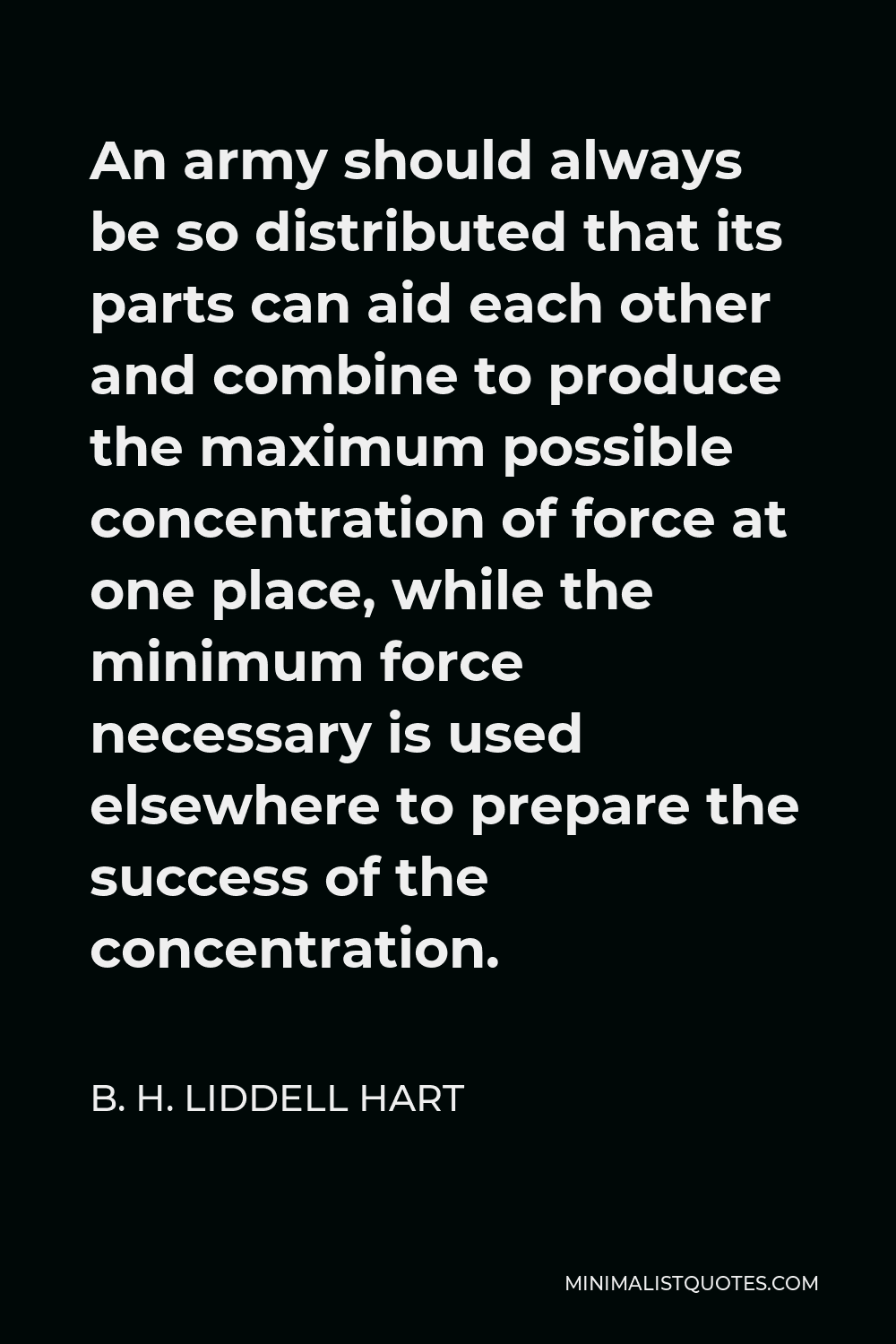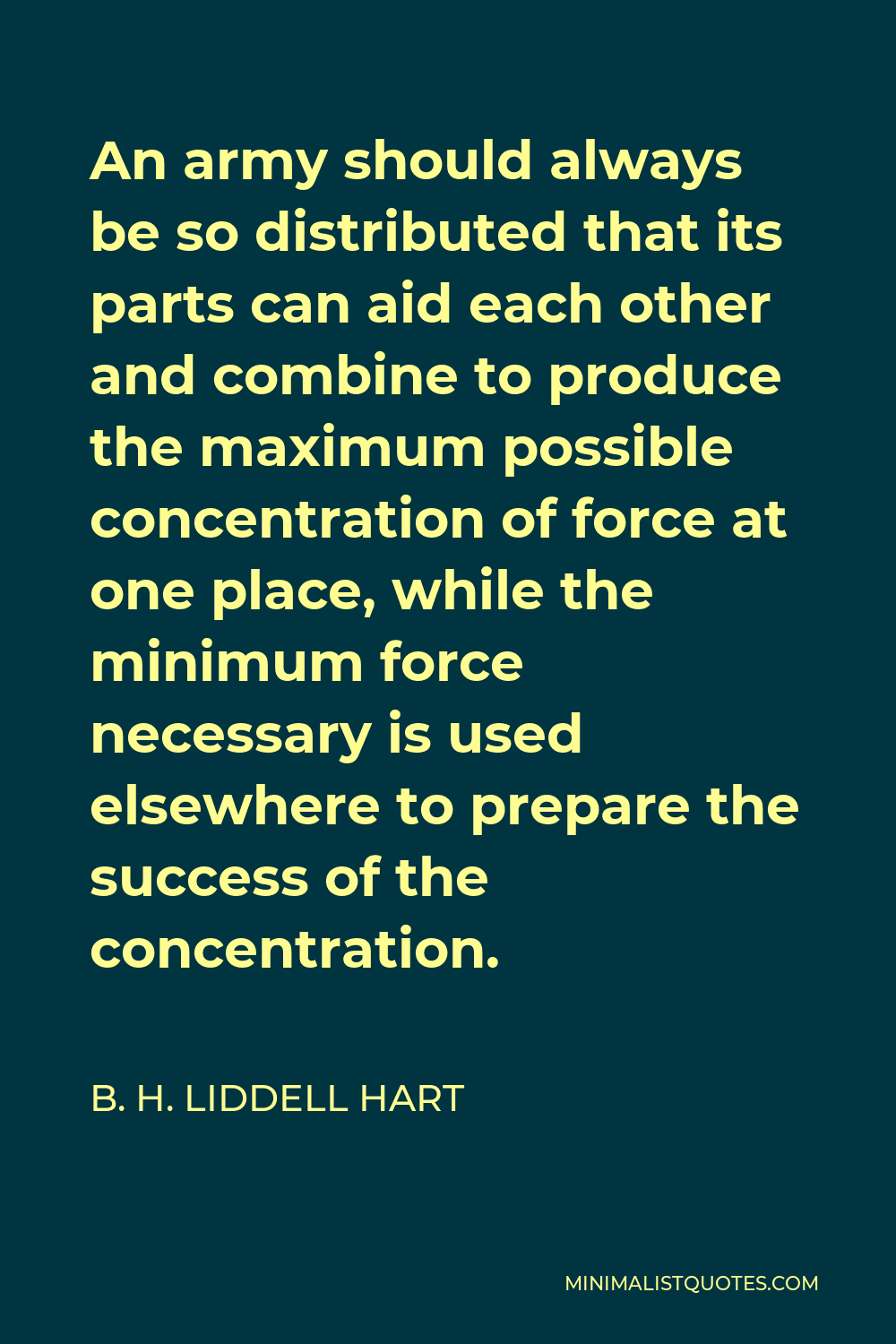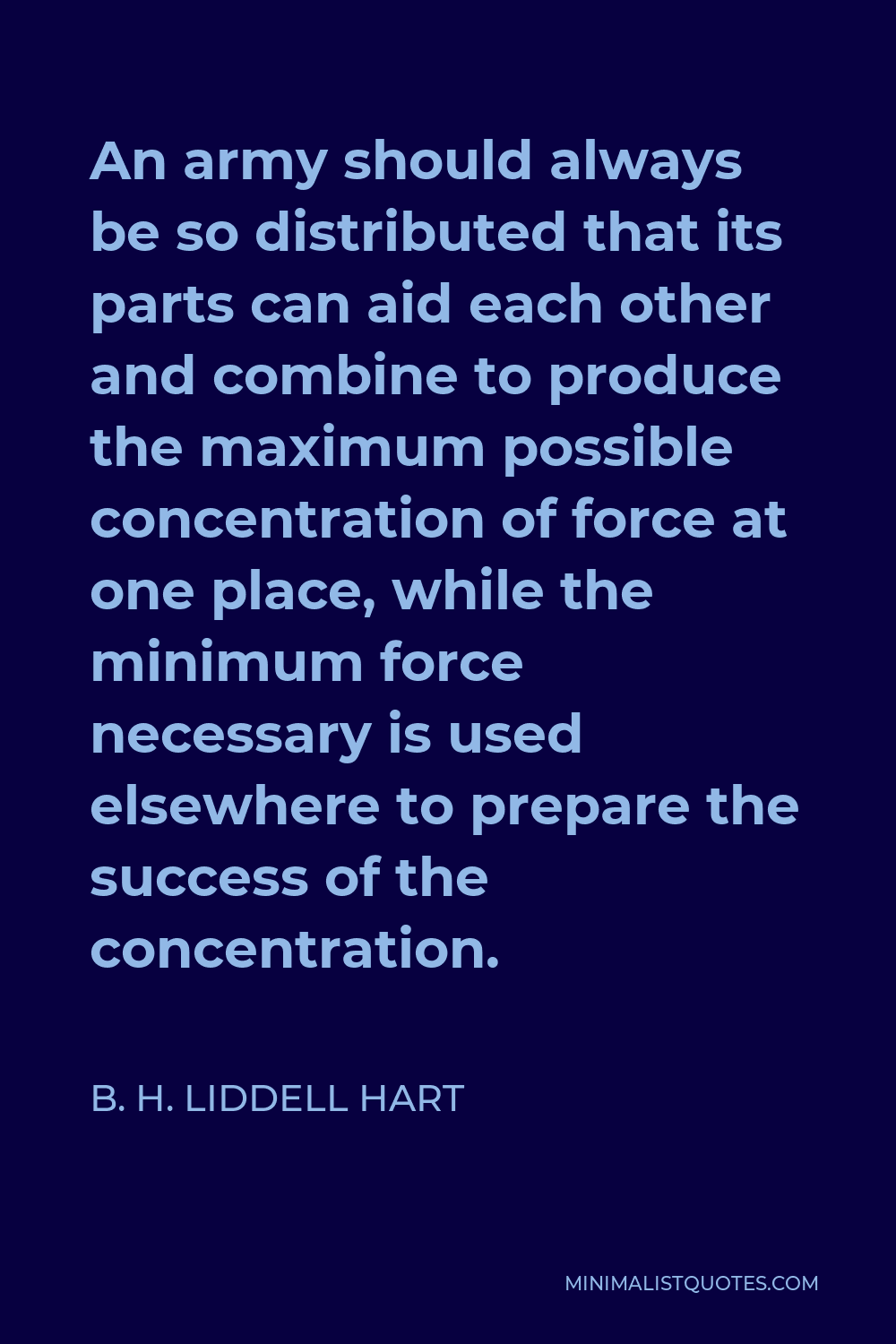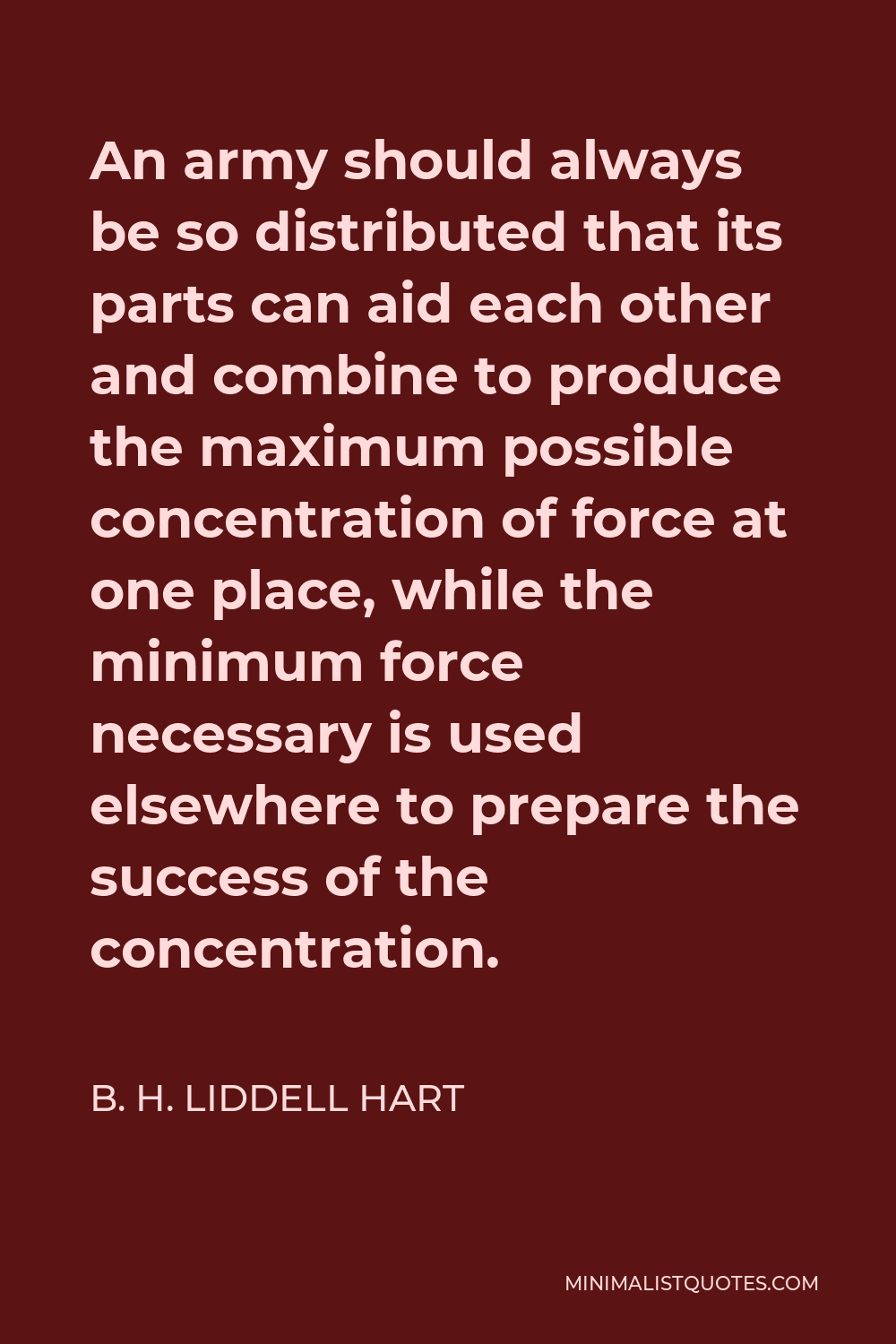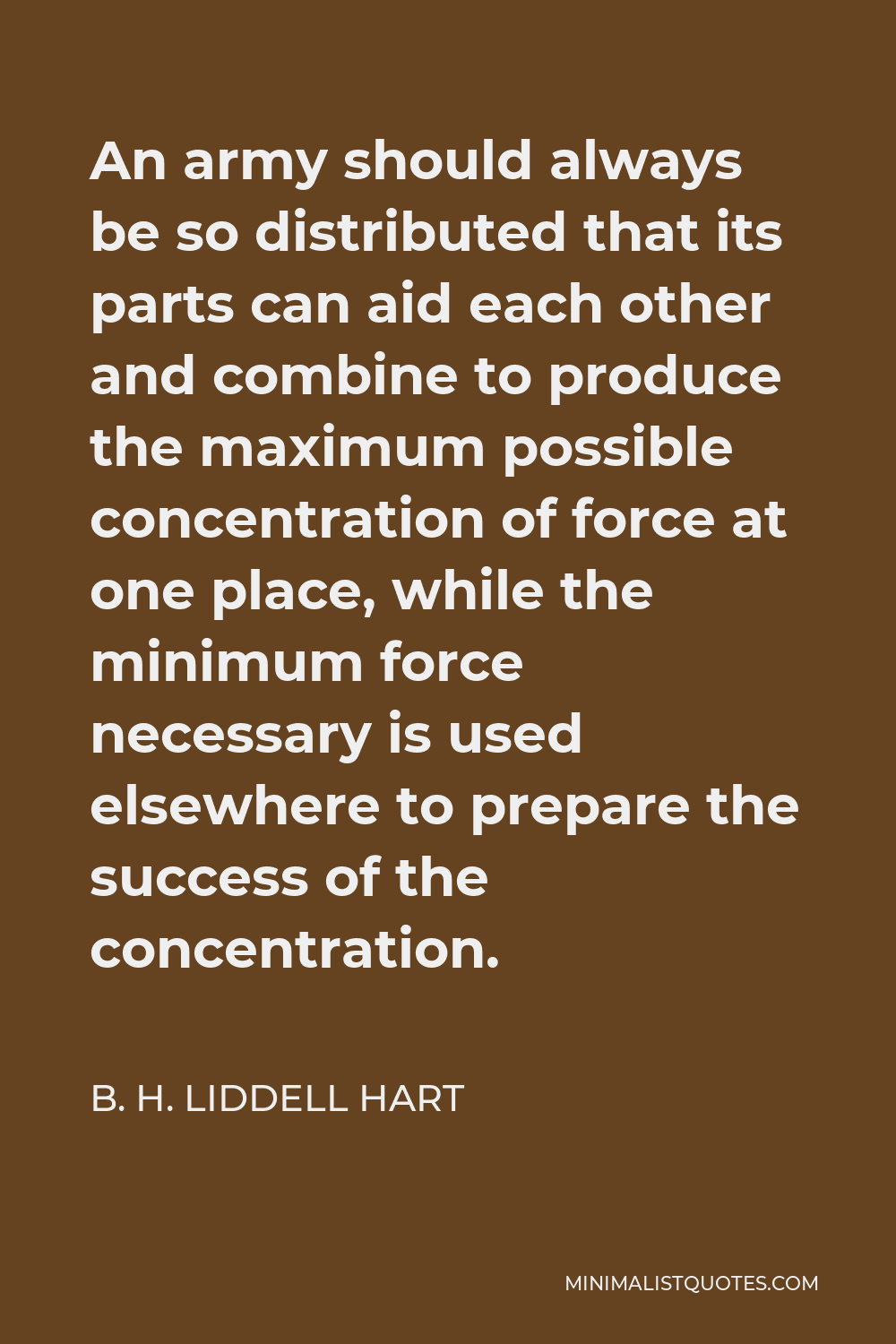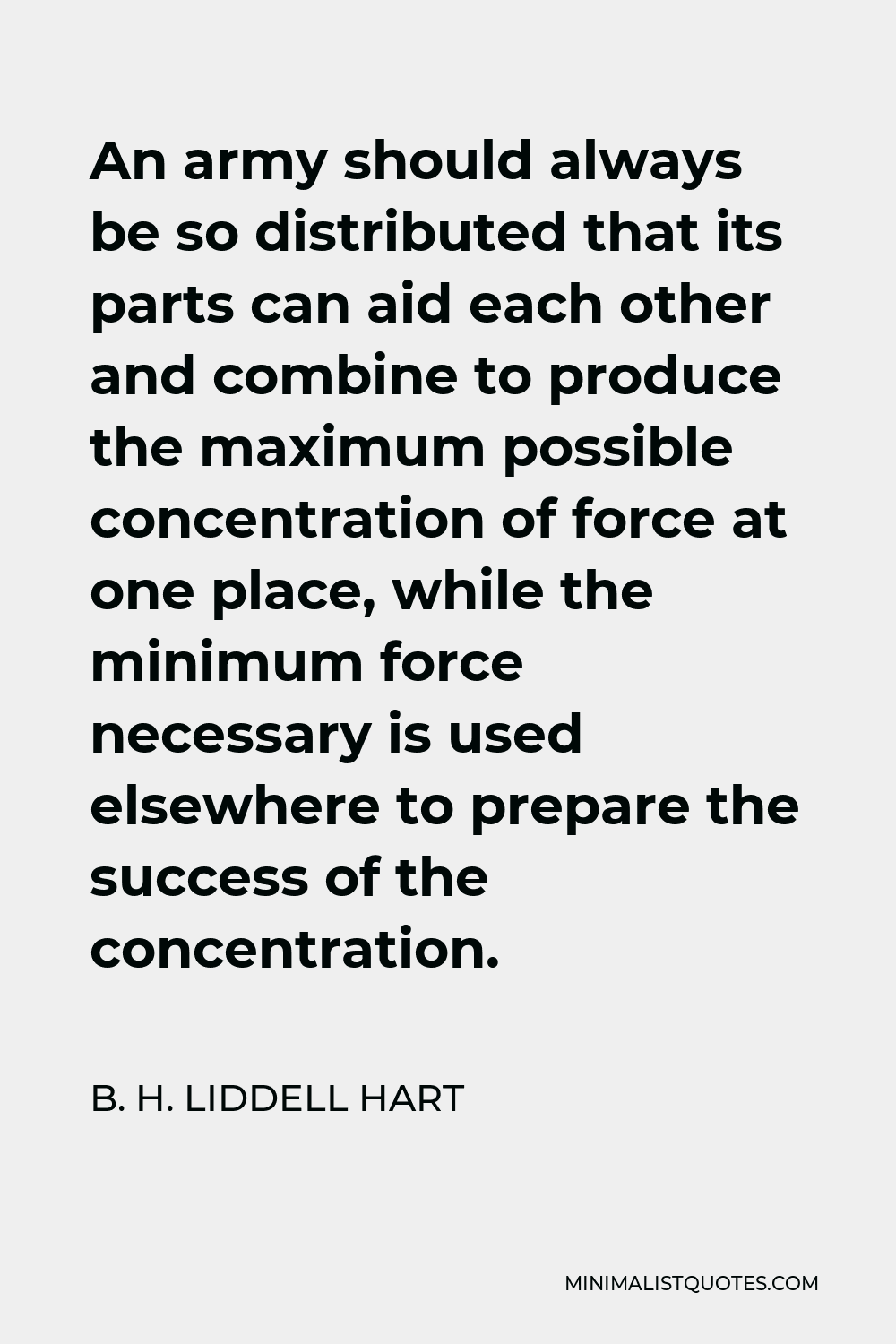Loss of hope rather than loss of life is what decides the issues of war. But helplessness induces hopelessness.
B. H. LIDDELL HARTAn army should always be so distributed that its parts can aid each other and combine to produce the maximum possible concentration of force at one place, while the minimum force necessary is used elsewhere to prepare the success of the concentration.
More B. H. Liddell Hart Quotes
-





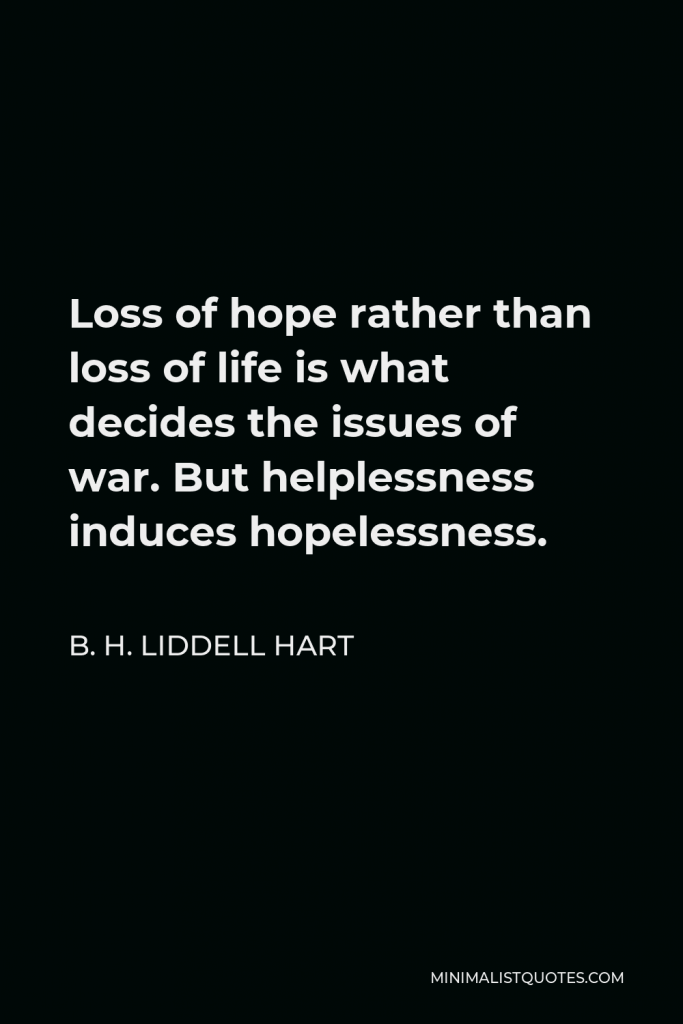

-





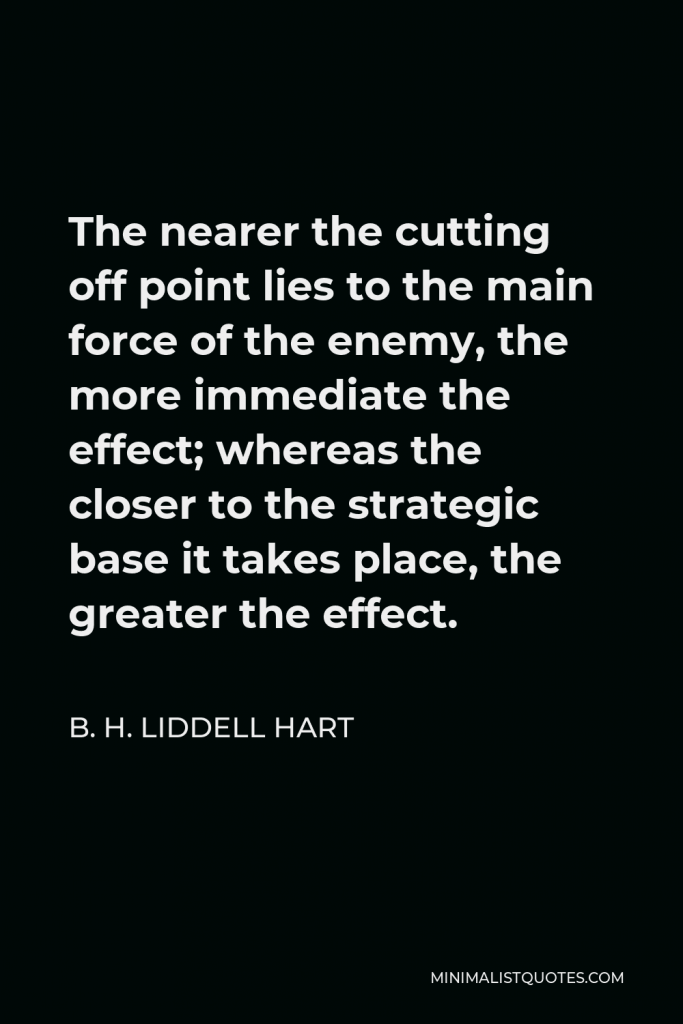

The nearer the cutting off point lies to the main force of the enemy, the more immediate the effect; whereas the closer to the strategic base it takes place, the greater the effect.
B. H. LIDDELL HART -





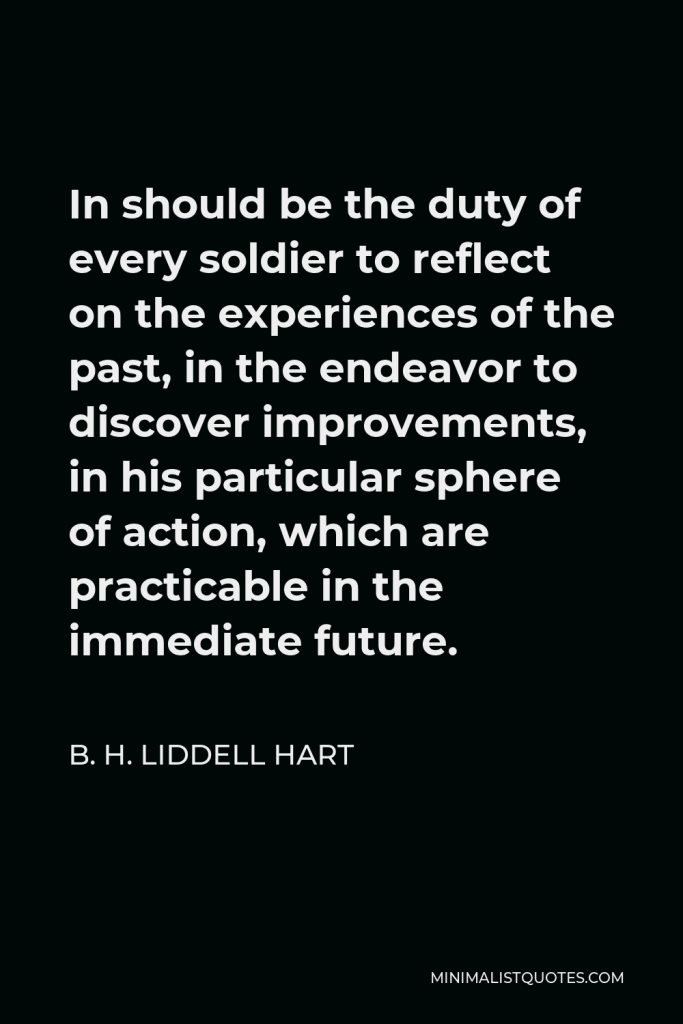

In should be the duty of every soldier to reflect on the experiences of the past, in the endeavor to discover improvements, in his particular sphere of action, which are practicable in the immediate future.
B. H. LIDDELL HART -





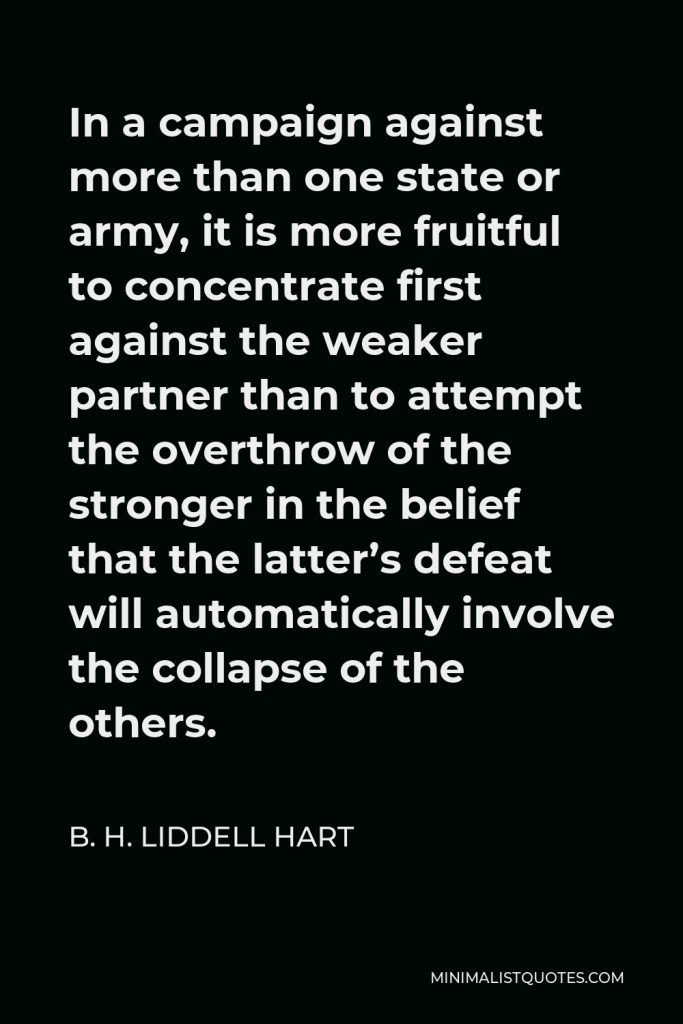

In a campaign against more than one state or army, it is more fruitful to concentrate first against the weaker partner than to attempt the overthrow of the stronger in the belief that the latter’s defeat will automatically involve the collapse of the others.
B. H. LIDDELL HART -





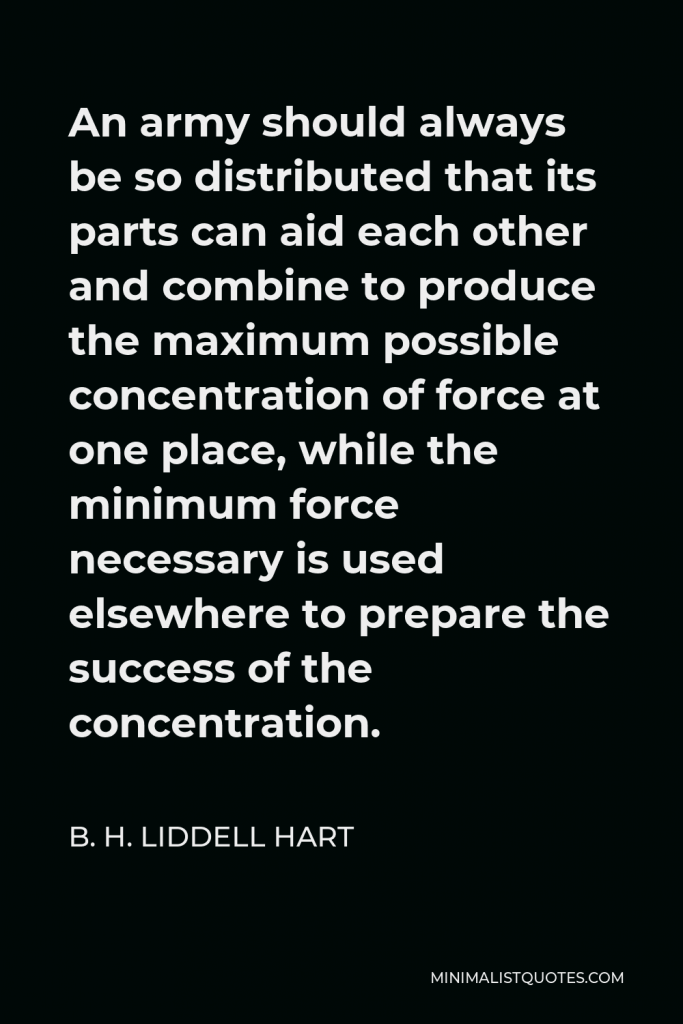

An army should always be so distributed that its parts can aid each other and combine to produce the maximum possible concentration of force at one place, while the minimum force necessary is used elsewhere to prepare the success of the concentration.
B. H. LIDDELL HART -





![B. H. Liddell Hart Quote - [The] aim is not so much to seek battle as to seek a strategic situation so advantageous that if it does not of itself produce the decision, its continuation by a battle is sure to achieve this. In other words, dislocation is the aim of strategy.](https://minimalistquotes.com/wp-content/uploads/2022/10/the-aim-is-not-so-much-to-seek-battle-as-to-seek-a-683x1024.jpg)

[The] aim is not so much to seek battle as to seek a strategic situation so advantageous that if it does not of itself produce the decision, its continuation by a battle is sure to achieve this. In other words, dislocation is the aim of strategy.
B. H. LIDDELL HART -





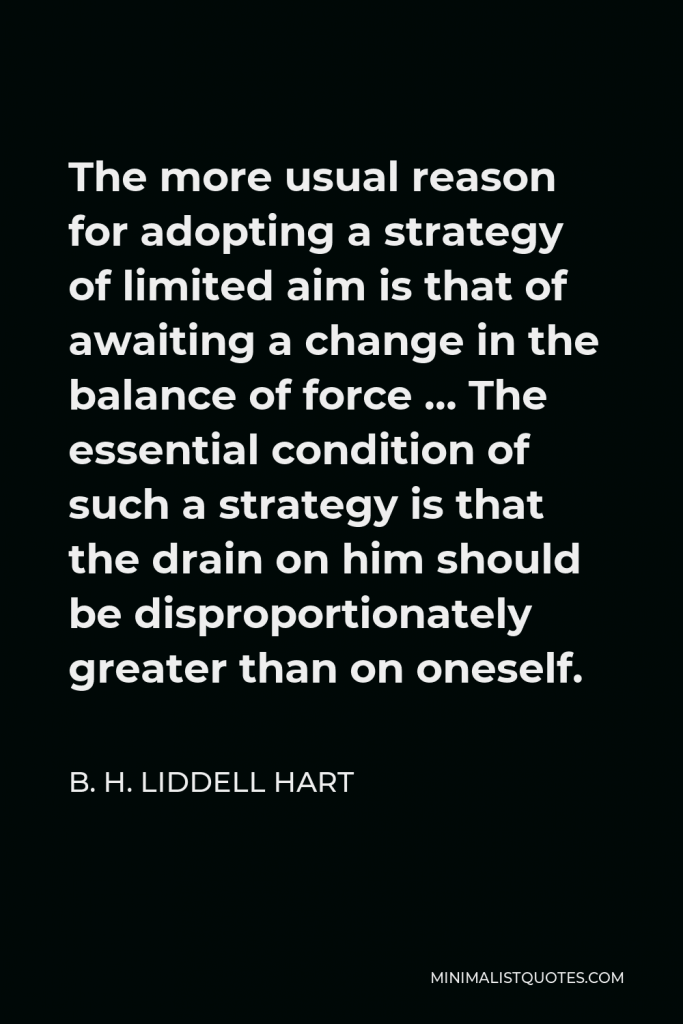

The more usual reason for adopting a strategy of limited aim is that of awaiting a change in the balance of force … The essential condition of such a strategy is that the drain on him should be disproportionately greater than on oneself.
B. H. LIDDELL HART -





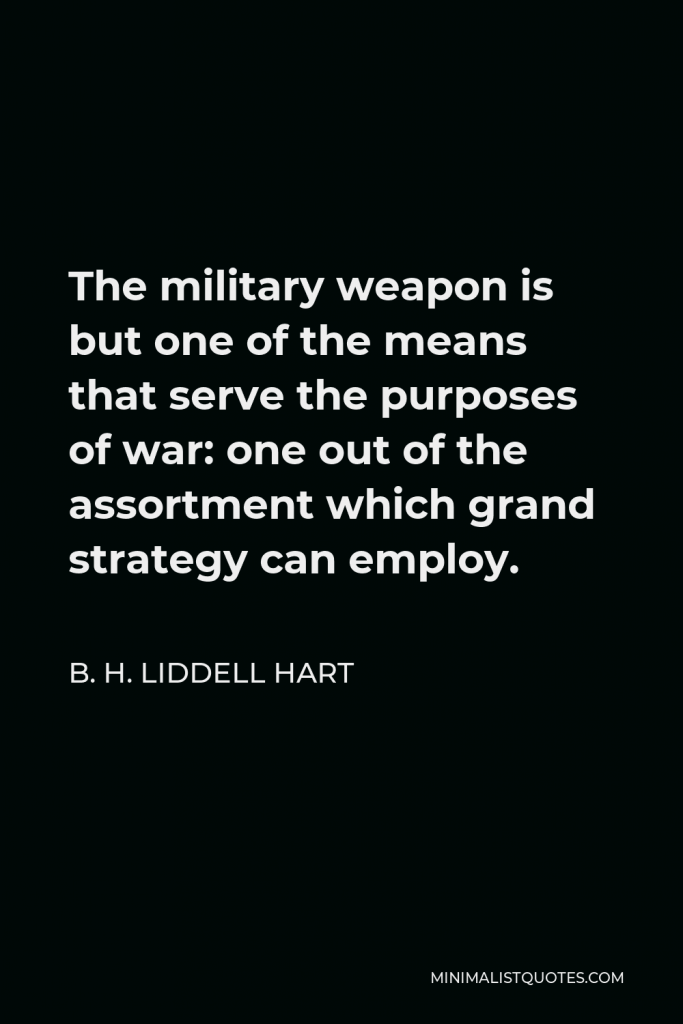

The military weapon is but one of the means that serve the purposes of war: one out of the assortment which grand strategy can employ.
B. H. LIDDELL HART -





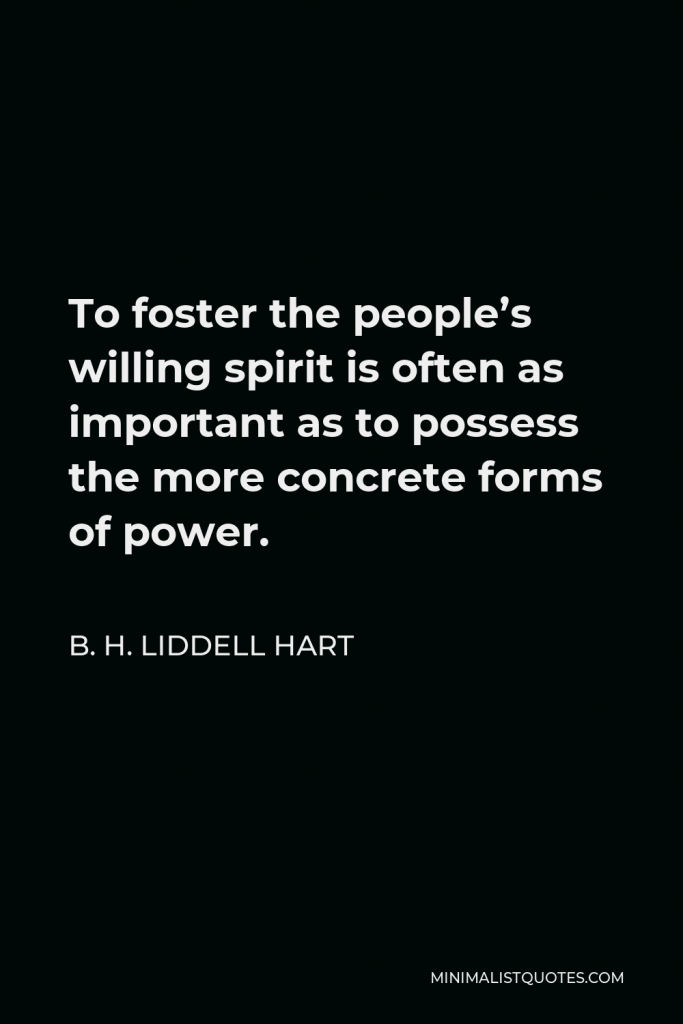

To foster the people’s willing spirit is often as important as to possess the more concrete forms of power.
B. H. LIDDELL HART -





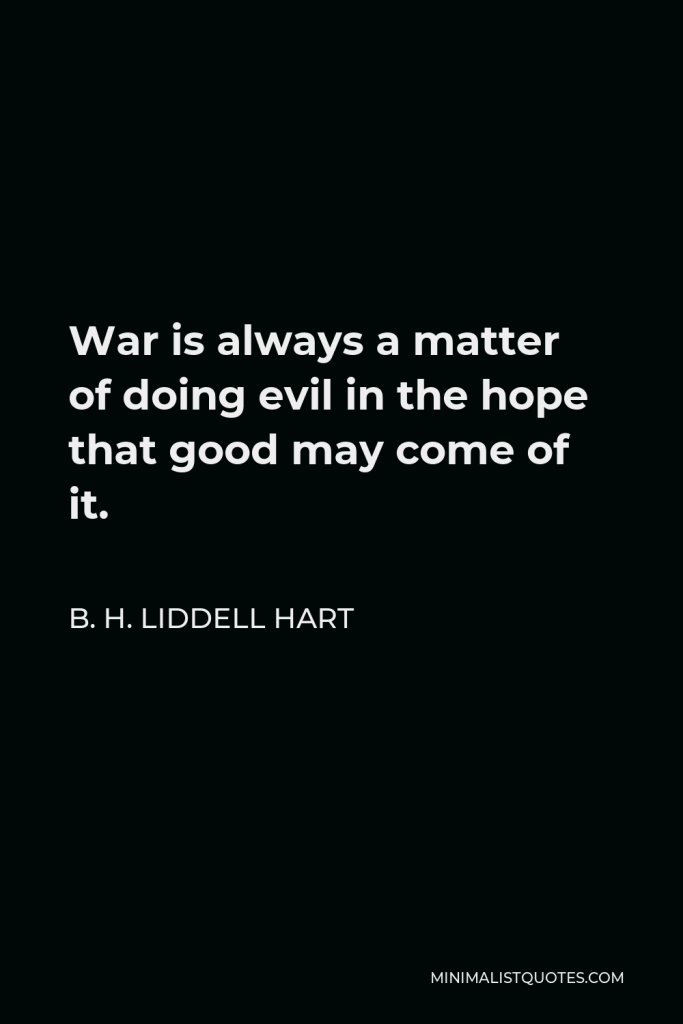

War is always a matter of doing evil in the hope that good may come of it.
B. H. LIDDELL HART -





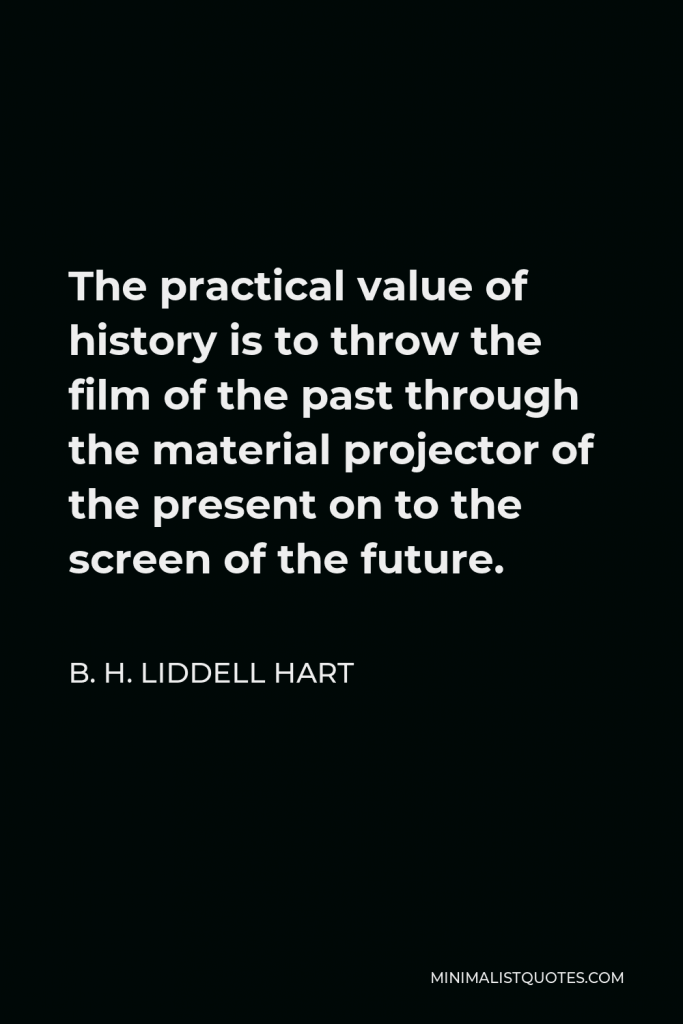

The practical value of history is to throw the film of the past through the material projector of the present on to the screen of the future.
B. H. LIDDELL HART -





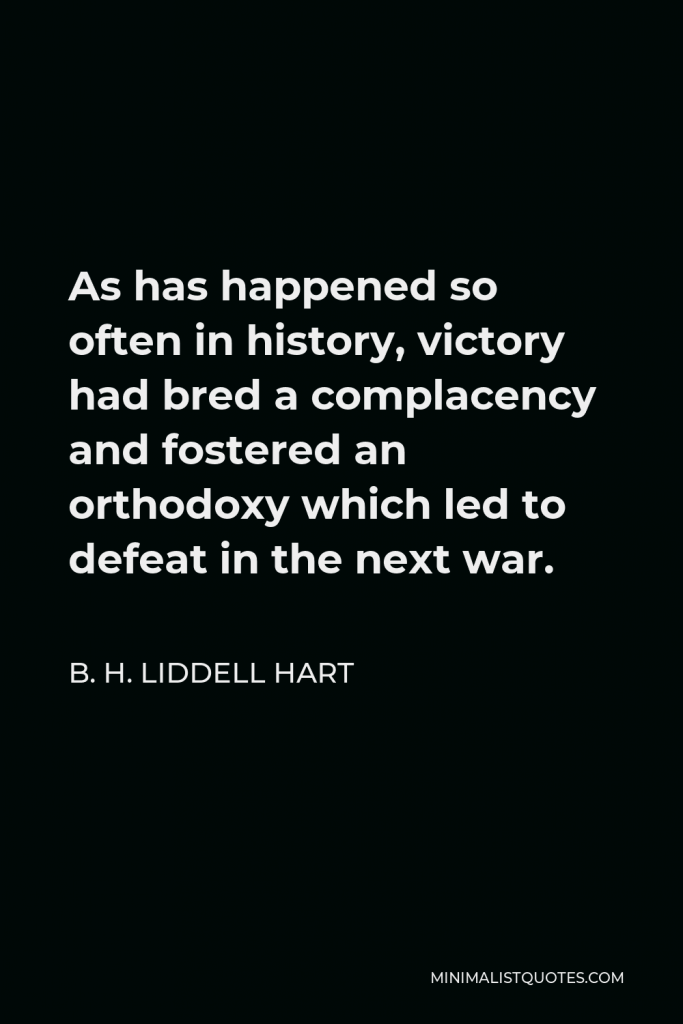

As has happened so often in history, victory had bred a complacency and fostered an orthodoxy which led to defeat in the next war.
B. H. LIDDELL HART -







It is only to clear from history that states rarely keep faith with each other, save in so far (and so long) as their promises seem to them to combine with their interests.
B. H. LIDDELL HART -





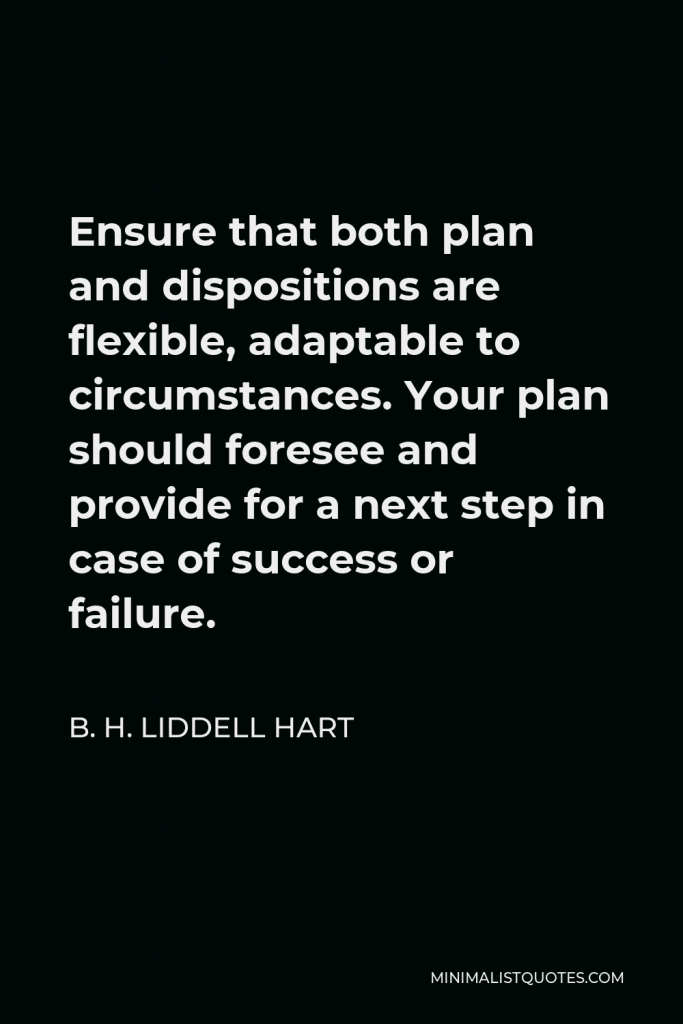

Ensure that both plan and dispositions are flexible, adaptable to circumstances. Your plan should foresee and provide for a next step in case of success or failure.
B. H. LIDDELL HART -





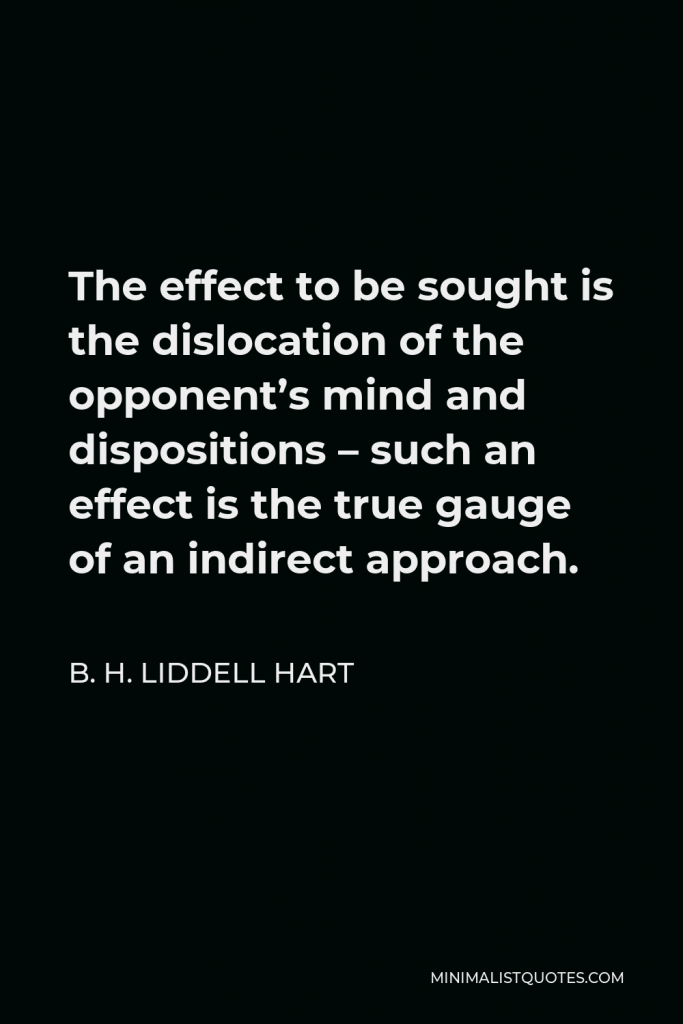

The effect to be sought is the dislocation of the opponent’s mind and dispositions – such an effect is the true gauge of an indirect approach.
B. H. LIDDELL HART -





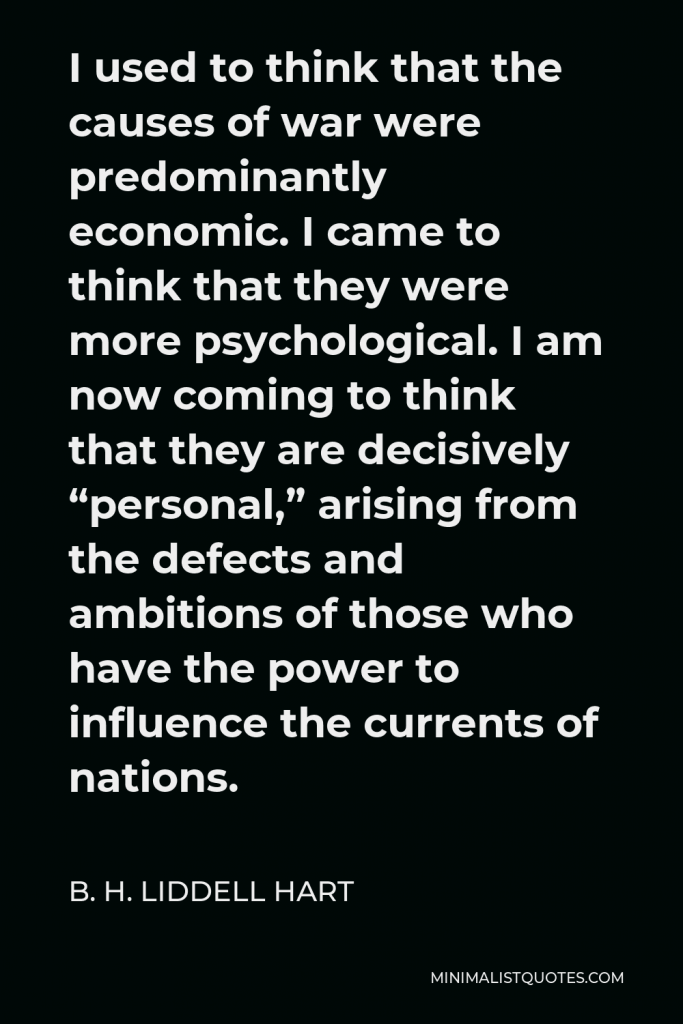

I used to think that the causes of war were predominantly economic. I came to think that they were more psychological. I am now coming to think that they are decisively “personal,” arising from the defects and ambitions of those who have the power to influence the currents of nations.
B. H. LIDDELL HART
